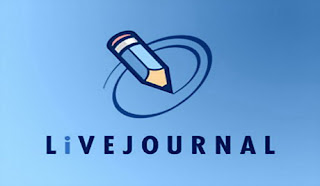Kazakhstan and the Internet War
It is no surprise to read about Kazakhstan and the internet war on terrorism. Kazakhstan and its people have seen many changes in the years since the breakup of the Soviet Union in 1991, democracy being one of those changes.
Although the Kazakhstan government is attempting to change, it is often difficult to dismiss the familiar, which is the case with Kazakhstan‘s attempts to introduce democracy in a land that has never known democracy. For three thousand years, nomadism, tribal warfare, Mongol dynasties, foreign domination, and Soviet communism have ruled Kazakhstan.
If the internet and blogs had been around when the communist apparatus fully integrated Kazakhstan into the Soviet system, Stalin would have banned them, which is not unlike what is occurring today with Kazakhstan and the internet war on terrorism.
In 2007, authorities arrested a Kazakh philosopher, charging him with writing an email questioning Kazakhstan’s close relationship with Russia. The government claimed the email was inciting racial hatred. The philosopher claimed he had only been expressing his personal views.
Security officers broke into his mailbox and removed some letters that they later presented as evidence in court. This action was in direct violation of Article 18 of the Kazakhstan Constitution granting citizens the right of privacy in personal correspondence. However, they still confined the man to a psychiatric institution.
In an effort to build up a positive image in the West, in 2007 Kazakhstan made a bid to chair the 2010 Organization for Security and Cooperation in Europe (OSCE), which would be focusing on security issues that year.
Because of Kazakhstan’s dismal human rights record, OSCE members and human rights groups argued that Kazakhstan would be an extremely controversial choice, which is exactly why it lost its chairmanship bids in 2005 and 2006. It’s hardly surprising given this context that most web users ensure they use security software to ensure their anonymous internet surfing as a matter of course.
In response to the concerns about Kazakhstan’s poor record, then-Foreign Minister Marat Tazhin pledged that the government would improve human rights practices and amend its media law to allow more media freedom while not losing its focus on Kazakhstan and the internet war on terrorism.
Kazakhstan’s Poor Human Rights Record
Watchdog groups repeatedly questioned Kazakhstan’s vow to uphold OSCE’s commitment to human and civil rights. Their suspicions proved correct. In spite of the pledge, freedom of the press increasingly diminished throughout the year, and in 2009, Kazakhstan passed a restrictive internet law which it used to intimidate bloggers and block websites. In addition, the government closed down two independent newspapers while allowing a journalist to remain in prison. Even established international media companies like the BBC have some difficulty reporting from the country.
The law categorized websites as mass media outlets. In the interest of state security, with obscure language and extremism statutes, the law granted authorities greater freedom to shut down sites. On March 1, 2010, the Kazakhstan government declared a computer emergency and established a response team.
 |
| Kazakhstan Banned Livejournal |
In addition, the government announced it was compiling a blacklist of destructive websites. It further reported that KazakhTelecom and NurSat, Kazakhstan’s largest internet service providers, had repeatedly obstructed access to the LiveJournal.com blogging platform. In the case of Kazakhstan and the internet war on terrorism, one of these old adages might fit: “The apple doesn’t fall far from the tree.” Or, “Old habits die hard.”
During all of 2010, the government continued to make empty promises to correct its human rights violations relating to cyberspace. Despite diplomatic efforts and media scrutiny on the freedom of expression situation during Kazakhstan’s year long OSCE chairmanship, and notwithstanding amendments offered in January 2011, the legal regime of internet suppression remains unchanged for the most part
Based on Kazakhstan’s history of controlling personal emails, it is no wonder
Kazakhstan is considering forcing internet cafes to monitor their customers’ use of the web, which human rights organizations say is cyberspace censorship by the ex-Soviet state. The government, on the other hand, claims the new regulations are an attempt by authorities to cut off the steady stream of literature and videos that militant Islamists produce that serve to foment extremist violence.
A Kazakhstan court recently blocked access to LiveJournal.com, a popular Russian blogging platform, claiming Islamic extremists had been using it. The Kazakh Interior Ministry contends that most information technology crime occurs in internet cafes where criminals and extremists congregate.
For this reason, authorities are now considering monitoring internet café clients by using software to collect data showing the time of a customer’s work and the IP address used. The proposed regulations may also require internet cafes to install cameras to video tape customers.
Because Kazakh citizens living outside of major cities are beyond the reach of the internet, only a minority of people can currently access the web. However, with increased numbers of citizens wanting to access blogs and social networks, Kazakhstan’s relationship with the internet remains a complicated one, requiring the government to buttress internet usage and improve the telecommunications sector while at the same attempting to monitor and suppress online content.
Long before the current internet law was enacted, a plethora of legislation (300-plus acts controlling information and telecommunications) was already passed into law placing limitations on internet content. Therefore, Kazakhstan and the internet war on terrorism will continue for some time into the future.
